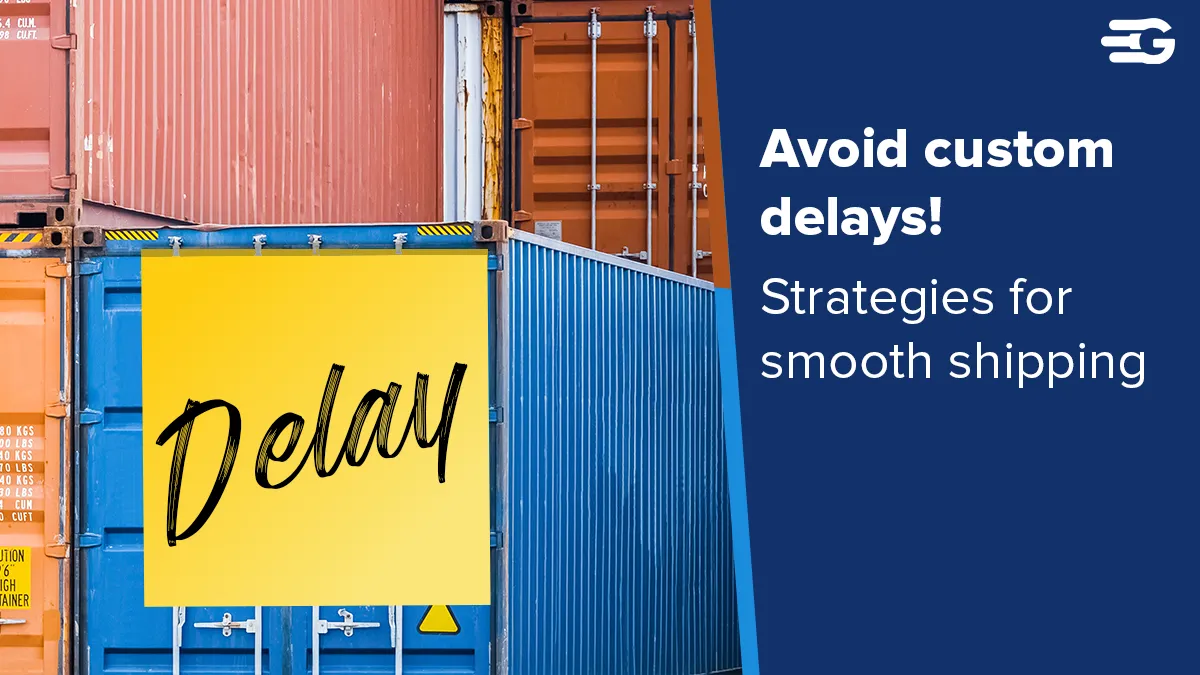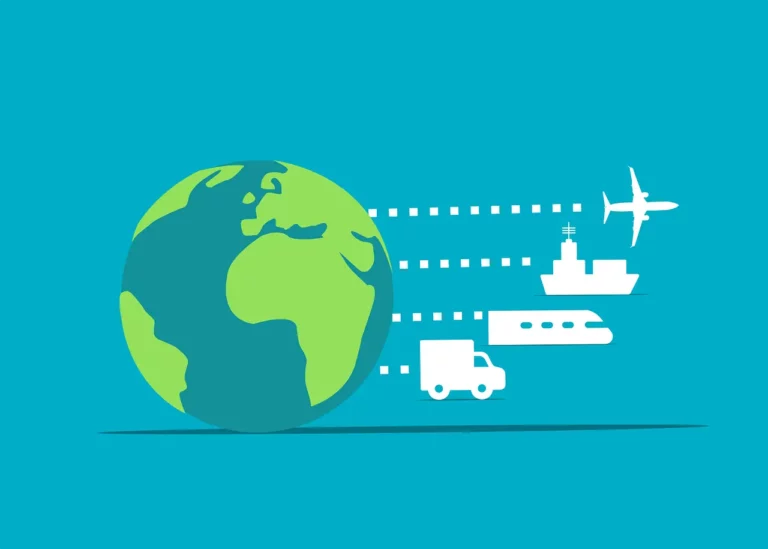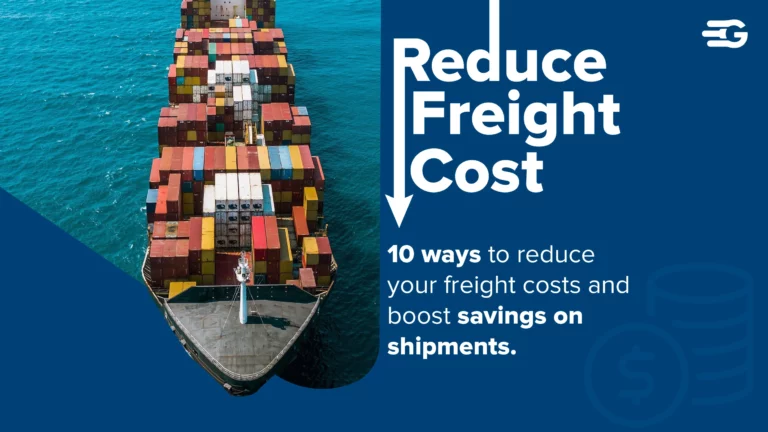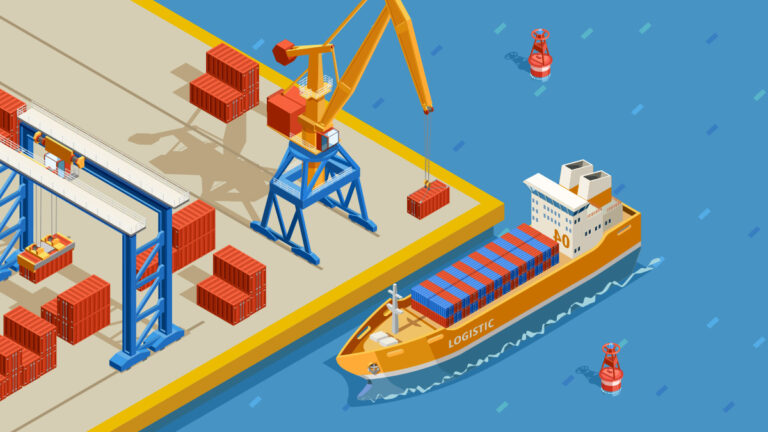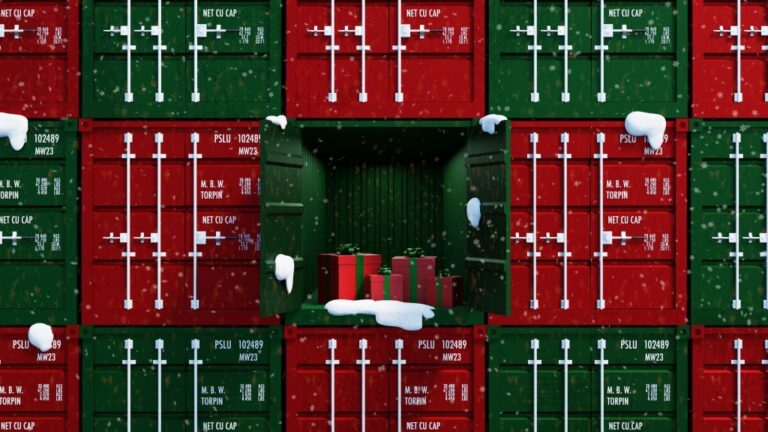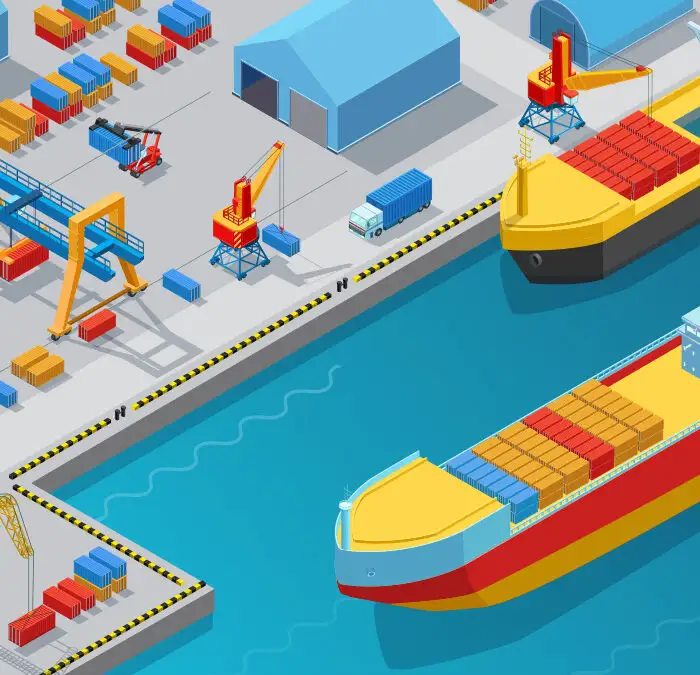Tackling Customs Clearance Delays in Global Trade
Any international shipment must pass through customs in the origin and destination countries. This process, called customs clearance, verifies the shipment’s contents and ensures it complies with regulations.
Unfortunately, sometimes things get held up, leading to customs clearance delays. These delays can be frustrating and disrupt your shipping schedule. They can be especially significant because international shipping often relies on tight deadlines.
While statistics often revolve around efficiency, measured in the time it takes to clear customs, arriving on globally applicable numbers is practically cumbersome. The World Bank’s Logistics Performance Index (LPI) uses a scale of 1-5, with higher scores indicating faster clearance times
Through this blog, we’ll explore the common reasons for customs clearance delays and how to avoid them.
Understanding Customs Clearance Delays
What Triggers Customs Delays
Customs clearance delays can be a source of frustration and lost time for international shippers. Understanding the common causes can help you avoid these roadblocks and keep your shipments moving smoothly. Here’s a closer look at some of the biggest culprits, drawing from insights from FedEx and ShipCalm:
- Documentation Errors: Inaccurate or incomplete paperwork in shipment is a major reason for customs delays. This includes:
- Missing or Incorrect Information: Even seemingly minor mistakes like typos in addresses, product descriptions, or quantities can cause delays. Customs officials need precise details to classify your goods and assess any duties or taxes owed.
- Missing Documents: Certain documents, like commercial invoices, bills of lading, and certificates of origin, are essential for customs clearance. A missing document can lead to your shipment being held up until it’s provided.
- Product Discrepancies: Inconsistencies between your shipment’s contents and the accompanying paperwork can raise red flags. This includes:
- Poor Descriptions: Vague or unclear descriptions of your goods can make it difficult for customs to classify them properly. Be specific about the materials, purpose, and value of each item.
- Incorrect Valuations: Undervaluing your goods can be seen as an attempt to avoid customs duties. Conversely, overvaluing them can lead to higher storage and insurance costs. Accurate valuations are crucial.
- Security Concerns: Customs officials are vigilant about protecting national security and preventing prohibited items from entering the country. If your shipment triggers any red flags, it may be subject to a physical inspection, causing delays. This can happen for reasons like:
- Restricted Items: Certain items like weapons, hazardous materials, or agricultural products require special permits or may be entirely banned.
- Vague Country of Origin: Shipments originating from countries with a high risk of counterfeiting or illegal goods may face closer scrutiny.
- Other Regulatory Issues: Beyond security concerns, customs may need to verify your shipment complies with various regulations. This could involve:
- Import/Export Permits: Certain goods may require special permits for import or export. Ensure you have the necessary documentation in order.
- Lab Testing: For certain products, customs may require lab testing to verify they meet health or safety standards. This testing process can add to clearance times.
The Consequences of Clearance Delays
Customs clearance delays don’t just disrupt your schedule; they can also hit your wallet hard. Let’s break down the financial implications you might face:
- Demurrage Charges: When shipments face customs delays beyond the carrier’s control, demurrage charges in shipping apply. These fees, imposed for exceeding the free time at the port, can quickly add up, impacting overall costs.
- Detention Fees: Similar to demurrage charges, detention fees are levied by the storage facility where your shipment is held up while awaiting customs clearance. These fees accumulate daily and can quickly become a burden, especially for perishable goods or time-sensitive shipments.
- Increased Insurance Costs: Delays can sometimes lead to your shipment being covered under more expensive extended insurance policies. This is because the longer your goods are in transit, the greater the risk of damage or loss.
- Lost Sales Opportunities: If your shipment is delayed due to customs clearance issues, you may miss crucial sales windows or delivery deadlines. This can lead to lost sales and potentially damage customer relationships.
Also Read: Understanding Detention and Demurrage in Shipping: A Complete Guide
Operational Impact
The ripple effects of customs delays extend far beyond just financial costs. Here’s how they can disrupt your entire supply chain and logistics operations:
- Disrupted Production Schedules: Delays in receiving essential materials or components can throw off your production schedule. This can lead to production line stoppages, missed deadlines, and ultimately, lost revenue.
- Inventory Shortages: If your delayed shipment contains finished goods, you may experience inventory shortages. This can force you to either backorder customer orders or lose sales altogether.
- Increased Transportation Costs: In an effort to expedite the clearance process, you might resort to more expensive express shipping options. These additional transportation costs can significantly inflate your overall shipping budget.
- Reduced Customer Satisfaction: Customers who experience delays due to customs hold-ups can become frustrated and dissatisfied. This can damage your brand reputation and lead to lost business.
By taking proactive measures to avoid customs delays, you can minimize these negative consequences and ensure your supply chain and logistics operations run smoothly.
Proactive Measures to Avoid Customs Delays
Ensuring Accurate Documentation: Best Practices
Accurate and complete documentation is the cornerstone of smooth customs clearance. Here are some tips to ensure your paperwork is in order, drawing from advice provided by ShipCalm and Easyship:
- Double-Check Everything: Before submitting your documents, carefully review every detail for accuracy. This includes addresses, product descriptions, quantities, weights, and values. A single mistake can cause delays.
- Know Your HS Codes: Harmonized System (HS) codes are universally used to classify goods for customs purposes. Identify the correct HS code for each item in your shipment to ensure proper classification and duty assessment.
- Use Clear and Concise Descriptions: Don’t be vague when describing your products. Be specific about the materials, purpose, and function of each item. This helps customs officials understand your shipment quickly.
- Declare Accurate Values: Undervaluing your goods can be seen as an attempt to avoid customs duties while overvaluing them can lead to higher storage and insurance costs. Declare the true commercial value of your shipment.
- Stay Up-to-Date on Regulations: Import/export regulations can change frequently. Stay informed about the latest regulations for the countries you’re shipping to and from to avoid any surprises at customs.
These best practices can significantly reduce the risk of documentation errors that can lead to customs delays.
Utilizing Technology for Compliance: Tech Solutions
Technology can be a powerful ally in navigating the complexities of customs clearance. Here’s how leveraging technological solutions can streamline your processes, drawing on the example of GoComet’s offerings:
- Automated Documentation: Cloud-based shipping platforms like GoComet can automate the creation of customs forms and invoices, reducing the risk of errors and saving you time.
- Compliance Management Tools: These tools can help you classify your goods, determine applicable HS codes, and stay updated on regulations, ensuring your shipments comply with customs requirements.
- Real-Time Tracking: Track your shipment’s progress in real-time through every stage of customs clearance, allowing you to identify and address any potential issues promptly.
- Data Analytics: By analyzing past customs clearance data, you can identify patterns and areas for improvement, optimizing your processes for future shipments.
Investing in robust technological solutions like those offered by GoComet can empower you to navigate customs clearance with greater efficiency and minimize the risk of delays.
Navigating Detention and Demurrage Fees
Customs delays can not only impact your shipment schedule but also lead to significant financial burdens through demurrage and detention charges. Here’s a breakdown of these terms and how they relate to customs hold-ups, incorporating insights from FedEx and Easyship:
- Demurrage: This term refers to the fees levied by the shipping line when your container remains at the port terminal beyond the allocated free time after being discharged from the vessel. Think of it as a storage fee for holding onto the container space. Delays caused by customs clearance issues can trigger demurrage charges, adding extra costs to your shipment.
- Detention: This refers to the fees charged by the container storage facility when you hold onto a shipping container beyond the free time allowed for unpacking and returning it. Detention comes into play after your shipment has cleared customs and left the port terminal. If customs delays prevent you from promptly unpacking and returning the container, you’ll incur detention charges.
Detention and demurrage are essentially two sides of the coin when it comes to container usage. Demurrage applies while the container is stuck at the port due to customs, while detention kicks in when the delay occurs at your facility after clearance.
Strategies to Minimize Detention and Demurrage Charges
Here are some actionable steps you can take to minimize the risk of incurring these fees:
- Plan and Be Proactive: Thorough planning is key. Ensure all your documentation is accurate and complete well before your shipment arrives. Research customs regulations for the destination country to anticipate any potential hold-ups.
- Communicate Effectively: Maintain clear communication with your customs broker, freight forwarder, and shipping line. Provide them with all necessary information promptly and keep them updated on any changes.
- Utilize Available Free Time: Most ports and container yards offer a free window for storage. Be prepared to handle your shipment efficiently within this timeframe to avoid demurrage charges.
- Negotiate Free Time Extensions: If you anticipate potential delays due to customs complexities, try negotiating an extension on the free time allowance with your shipping line beforehand.
- Consider Faster Clearance Options: For time-sensitive shipments, explore expedited clearance options offered by customs brokers or freight forwarders, although these may come at an additional cost.
The Role of Clearing Agents and Freight Forwarders
Partnering with Professionals
The world of international shipping can be complex, and customs clearance is often the most intricate part of the journey. While the tips provided can equip you to handle some aspects on your own, navigating the intricacies of customs regulations and procedures can be a daunting task, especially for businesses new to international trade. This is where partnering with experienced clearing agents and freight forwarders becomes invaluable.
Why Partner with Professionals?
- In-Depth Knowledge and Expertise: Customs regulations can be vast and ever-changing. Experienced clearing agents and freight forwarders possess a deep understanding of these regulations and stay updated on the latest changes. They can guide you through the entire clearance process, ensuring your shipment complies with all requirements.
- Streamlined Documentation: Accurate and complete paperwork is crucial for smooth customs clearance. Professionals can help you ensure all documents are prepared correctly, minimizing the risk of delays caused by errors or missing information.
- Risk Management and Problem-Solving: Customs processes can sometimes present unforeseen challenges. Clearing agents and freight forwarders have the experience and know-how to identify and address potential issues proactively, minimizing delays and ensuring your shipment reaches its destination efficiently.
- Negotiation and Cost Optimization: Experienced professionals can leverage their knowledge and relationships with customs authorities to negotiate on your behalf, potentially reducing delays and associated costs like demurrage charges.
- Time-Saving Efficiency: Dealing with customs can be time-consuming. Partnering with professionals frees you to focus on your core business activities while they handle the complexities of customs clearance.
By partnering with a reputable clearing agent or freight forwarder, you gain access to their expertise, experience, and established relationships within the customs environment. This allows you to navigate the customs process with greater confidence, minimize delays, and ensure a smooth flow for your international shipments.
Preparing for Uncertainties in Customs Clearance
Having a contingency plan in place, businesses can react more effectively to unexpected customs delays, minimizing disruptions and ensuring a smoother overall flow of international operations. Even with the best preparation, customs delays can still occur. Here’s how businesses can create contingency plans:
- Identify Potential Hold-Ups: Research common customs delays for your target markets and consider worst-case scenarios.
- Inventory Buffer: Maintain a buffer stock of critical items to mitigate disruptions caused by clearance delays.
- Alternative Suppliers: Develop relationships with secondary suppliers to source materials in case a shipment gets stuck.
- Expedited Options: Plan for potential delays by budgeting for expedited clearance options if needed.
- Communication Strategy: Establish a clear communication plan to keep stakeholders informed in case of delays.
Conclusion: Empowering Your Business Against Customs Delays
International shipping success hinges on navigating customs clearance efficiently. Delays here can lead to a domino effect of financial losses, frustrated customers, and disrupted operations.
By taking a proactive approach to customs management, you can significantly reduce these risks. This means ensuring accurate documentation, staying informed about regulations, and planning for potential contingencies.
With GoComet as your partner, you gain the tools and insights needed to navigate customs clearance with confidence. This translates to smoother international shipping operations, reduced delays, and ultimately, a significant advantage in today’s globalized marketplace.
